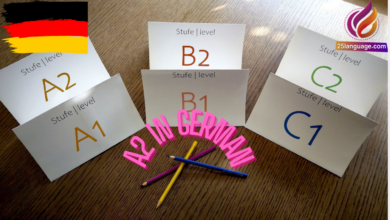Possessive adjectives

Possessives adjectives are words such as ‘my’, ‘your’, ‘his’, ‘her’ which indicate that something belongs to somebody.
Possessives are used in a similar way in English and in German. If something belongs to a male person, use the male pronoun ‘his’ to indicate that it belongs to him. If something belongs to a female or to more than one person, you choose the female pronoun ‘her’ or a plural pronoun such as ‘our’ or ‘their’.
sein Haus his house
ihr Auto her car
unsere Tochter our daughter
The possessive adjectives in German
Here is an overview of the possessive adjectives:
| ich | I | mein | my |
| du | you (informal) | dein | your |
| Sie | you (formal) | Ihr | your |
| er | he | sein | his |
| sie | she | ihr | her |
| es | it | sein | his |
| wir | we | unser | our |
| ihr | you (informal) | euer | your |
| Sie |
you (formal) |
Ihr |
your |
| sie |
they |
ihr |
their |
Possessive adjectives require endings
In German, the endings of possessive adjectives must agree in gender, number and case with the noun that they are linked to. However, this is not as complicated as it sounds. The endings follow the pattern of the indefinite article ein, with some variations in the plural.
In the nominative case, there are no possessive adjectival endings before masculine and neuter nouns. If the noun is feminine or plural, -e is added to the possessive:
Das ist mein Bruder.
This is my brother.
Das ist meine Mutter.
This is my mother.
Das ist mein Auto.
This is my car.
Meine Geschwister wohnen in Berlin.
My brothers and sisters live in Berlin.
Possessive adjective endings in the accusative case
You probably remember the main change in the accusative case, where the indefinite article for masculine nouns changes from ein to einen. The possessive follows exactly the same pattern and adds -en when it appears before a masculine noun. The feminine and plural forms take an extra -e.
Sie trifft ihren Bruder. She meets her brother.
Sie trifft ihre Schwester. She meets her sister.
Sie sieht ihr Kind. She sees her child.
Sie trifft ihre Freunde. She meets her friends.
Possessive adjective endings in the dative case
In the dative case, the possessive takes the endings -em when referring to masculine and neuter nouns and -er if the noun is feminine. In the plural add -en:
Er spricht mit seinem Bruder. He talks to his brother.
Er spricht mit seiner Schwester. He talks to his sister.
Er spricht mit seinem Kind. He talks to his child.
Er spricht mit seinen Eltern. He talks to his parents.
Possessive adjective endings in the genitive case
At beginners’ level you are unlikely to use possessives in the genitive case, but you may encounter them in a written text or a recording. They have -es endings for masculine and neuter, and -er for feminine nouns and the plural.
Das ist der Freund unseres Sohnes. This is the friend of our son.
Das ist der Freund unserer Tochter. This is the friend of our daughter.
Das ist der Freund unseres Kindes. This is the friend of our child.
Die Freunde unserer Kinder sind The friends of our children are very nice.
sehr nett.




























